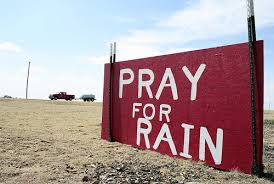
I read John Steinbeck’s masterpiece, The Grapes of Wrath earlier this year; the first book I read for pleasure after University. Pleasure was not easily found between the pages of the novel except for a dull cathartic ache as my eyes held back the tears and my mouth retained gasps as the Joads journeyed Westward.
On a scaffold, surrounded by Polish, Romanian and Bulgarian men, I could not help noticing similarities between their journey and the journey in the novel. Both groups follow work aimlessly, seemingly hopeful for the security that capital provides. Both groups away from home, strangers in a new land and similarly ostracised by the natives. Referred to as “Okies” one of the most striking themes in the novel was the contempt the migrants received from their own countrymen. Steinbeck shows that the idea of American comradeship fades to nothingness when people’s livelihoods, children and capacity to survive are at stake. Where the Joads find no solace in the West, the Eastern Europeans find some degree of security, yet who is to say financial security doesn’t imprison rather than secure?
The Joad family are left destitute as a result of the increasing grip of the “monstrous” banks paired with the drought which devoured Oklahoma’s agriculture. They load up all their belongings and two barrels of salted pork on a rickety truck and head to California. Their lack of foresight is based on the hopeful promises of recruiters who had; “come through with han’bills—orange ones,” each announcing the need for labour in the Californian orchards. The closer they get, the clearer the picture becomes. California’s Eden, where the family envisioned a fruitful bounty swiftly becomes a land of punishment for unknowable sins. Like Tantalus in Hades whose fruit is always out of reach, the Joads work in the orchards, unable to eat the fruit which they were so close to they could taste.
The narrative gradually increases in its relentlessness. Like the Joads journey, the prose slowly meanders, building up to moments of unfathomable pity. Hope is always apparent but as soon as it is recognised, Steinbeck swiftly jeopardises it. He tests his characters resolve, putting them under intense strain to see how they react. Tom Joad, the eldest son, having returned from prison on a murder charge, embodies the growing need for resistance and revolution. Occasionally in the book, Tom is on the brink of fighting back but eventually he fades into insignificance; defeated by the power of economy and reduced to live in a blackberry bush. The historical reference of the novel maintains the feeling that the hope is superficial and created. The extreme poverty of the migrants is known through historical record. This was something in the back of my mind, throughout. Essentially, the story moves towards an already established ending. The only ones who seem ignorant to the certainty are the Joads.
Politics today seems concerned with the issues of immigration and the effect that it has on society as a whole. Where reporting seems limited is on the personal experience, the reason and the lives of these people, driven out of their homes by the power of capitalism. The Grapes of Wrath provides a lens through which the trials and tribulations of migrant and immigrant communities can be viewed. Capitalism and the people it discards are as vulnerable as they were 75 years ago.
The ending is one of the most sublime, angering and fantastic pieces of literature that I have ever read. I will not spoil it for those of you who have not read it. All I will say is that Steinbeck masterfully revives hope, not in a poetic or theoretical manner but in physicality. By reducing the “Okies” to animals; hope is simply based in the continuation of life.